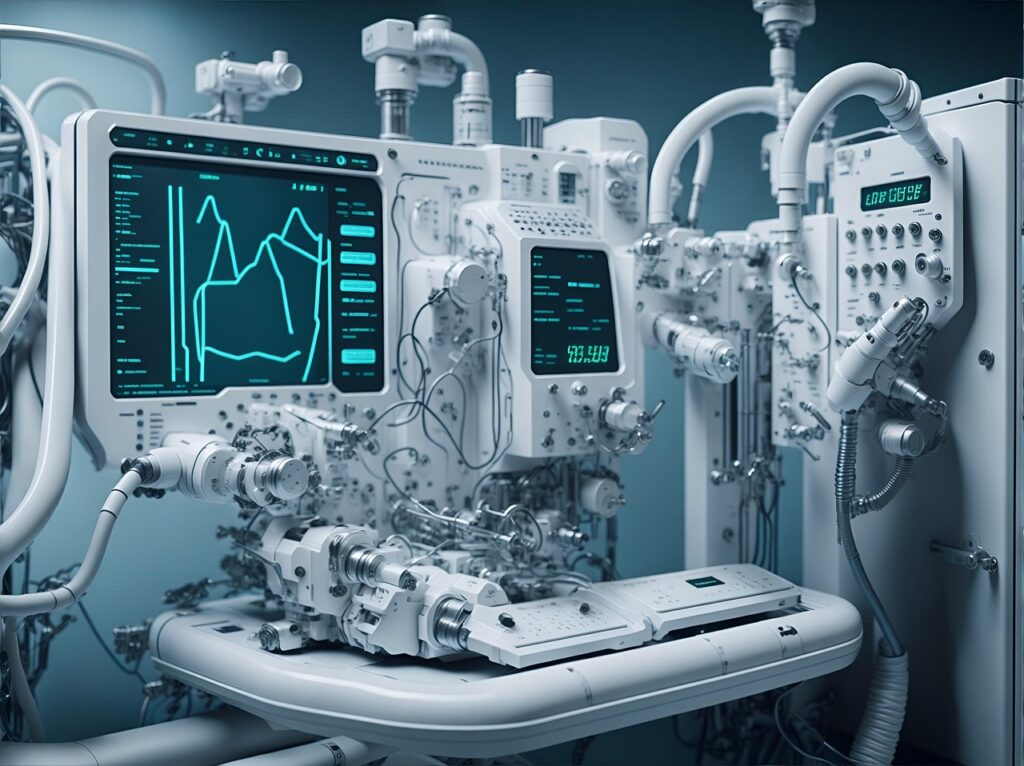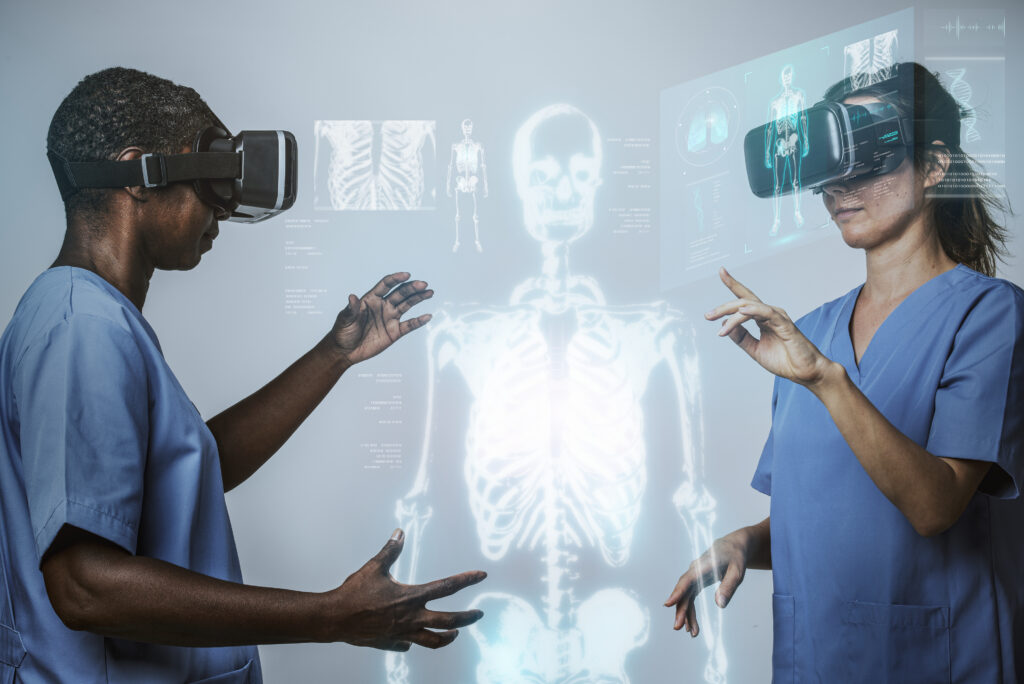Many areas’ present healthcare systems are inefficient due to issues like fragmented services, excessive wait times, restricted access, and a lack of early diagnosis. A digital healthcare platform called Doc’s Lab was created to bridge these gaps by providing a thorough and intuitive user interface that combines medication administration, personalized drug recommendations, and symptom-based disease prediction. Docs Lab intelligently processes user input to help patients in their healthcare journey by utilising both sophisticated deep learning techniques and classical machine learning. In addition to discussing data security and system scalability, this study describes the approaches, implementation tactics, algorithms, and possible effects of Doclab, particularly in underserved and rural areas. Learn more about innovations like this in our Health category.
What Part Does AI Play in Healthcare Prevention?

The field of healthcare is undergoing a transformation thanks to AI-powered education, particularly in the area of preventative measures. With proactive and individualised healthcare solutions, it is revolutionising how we approach illness prevention and health maintenance.
Healthcare practitioners may improve early detection, risk assessment, and diagnosis by utilising AI, freeing up more time to concentrate on prevention rather than just treatment.
Making data-driven decisions is one of AI’s most important contributions to preventative healthcare.
Healthcare and AI-Powered Education
The evolution of education in general has gone through several phases. Many teaching methodologies have been adopted over time as a result of the evolving cognitive capacity of both teachers and students. The way that teaching and learning are conducted has changed significantly as a result of the current epidemic. Students feel more at ease watching videos and using chatbots and online tests to help them study.
The broad scope of the curriculum, the need to understand every subject thoroughly, and the daily addition of new information without any of the existing knowledge being outdated make medical education even more difficult. In recent years, the student-teacher ratio has gotten worse along with the growing need for doctors.
Teaching Styles AI Vs Human
There are four categories of teaching methods:
- Visual
- Auditory
- Kinaesthetic
- Self-explanatory reading and writing styles.
Without human assistance, AI combines all the styles and provides minimal extras.
Four categories can be used to group the various AI-assisted teaching
Instructivist education, in which students use machines to learn on their own
Constructivist education, which typically involves exploratory settings, chatbots, and AI collaborative learning.
In teacher support, teaching assistants will aid with test creation, scoring, student focus, emotion detection, and even system support, which is mostly utilised as a research tool or in educational data mining.
The following is a summary of the four modalities according to the Doc’s lab:
In addition to the facilities mentioned above, the following can be very beneficial in medical curricula.
- Robotic procedures
- Learning images
- Predictive analysis and statistical analysis of massive health data.
- Managing patients
- Diagnostics
- Learning with simulation in skill labs
- Methods of instruction and evaluation
Medical students can receive individualised and flexible learning experiences from AI-powered education including virtual tutors. To comprehend student responses, spot knowledge gaps, and provide individualised instructional content, these systems employ NLP and ML algorithms.
What are the Advantages of AI in Healthcare Education?

AI-education platforms like Doc’s lab can save doctors time by supplying them with information as clinical problems arise, preventing them from having to review previously learnt material or skim irrelevant information.
Project for human diagnostics
The “Human Diagnosis Project,” or simply “Human Dx,” is an AI-enabled healthcare system. “Human Dx” seeks to combine machine learning and the combined knowledge of doctors to deliver better, more accurate, affordable, and easily accessible care for everybody. Some of the best medical schools in the world, including Harvard, Stanford, Yale, and other stakeholders, are currently working together to conduct research on its application in clinical decision-making.
Improving the quality of education
In order to improve the overall quality of management of these programs, the newest technology is being used in the construction of data centres, instructional resource libraries, and cloud platforms for student recruiting, training process management, and evaluation.
Evidence-based learning
AI-powered education platforms such as Doc’s lab is able to go through vast amounts of clinical trial data, medical literature, and patient data to give healthcare professionals recommendations that are supported by evidence. AI in preventative healthcare gives up new possibilities and handles a lot of the hard lifting, but medical professionals still need to analyse the results and make the ultimate decision.
How AI is Shaping the Future of Healthcare Education?
One of the most important future developments in medical education is AI’s ability to adapt and customize the learning process. With their diverse tastes and learning styles, today’s digital learners have unique needs that AI can help address. By analysing vast amounts of data and applying machine learning algorithms, artificial intelligence (AI) can provide adaptable instructional content that is appropriate for each student’s knowledge gaps and learning speed.
Summary
Doc’s lab is a ground-breaking platform that revolutionized education by leveraging generative artificial intelligence. Docs lab offers a carefully constructed question bank that has been validated by prominent colleges, addressing the flaws in the current educational system. Students are encouraged to compete constructively on this platform, which inspires them to achieve academic success. Additionally, it optimises study sessions and offers customized recommendations, functioning as a personalised study assistant.
Doc’s lab presents the idea of generative smart notes, which arrange study materials in an understandable and practical way. It fosters a lively learning environment where users can post thoughts, summaries, and articles. Cooperation and information exchange become commonplace. Doc’s lab wants to transform education, give students more power, and help them realise their full potential so they can have better futures.
FAQs
1. What is Doc’s Lab and how does it improve healthcare?
Doc’s Lab is a digital healthcare and education platform that leverages artificial intelligence to enhance patient care and medical learning. It offers features such as medication management, personalized drug suggestions, symptom-based diagnosis, and adaptive education tools for medical students and professionals—especially useful in underserved and rural areas.
2. How does AI enhance preventive healthcare?
AI supports preventive healthcare by enabling early disease detection, analyzing risk factors, and delivering personalized health recommendations. Platforms like Doc’s Lab use predictive analytics to alert patients and providers about potential health issues before symptoms become critical.
3. How is AI transforming medical education for students and professionals?
AI-powered education platforms provide customized learning experiences through virtual tutors, smart simulations, and evidence-based recommendations. In Doc’s Lab, AI helps students absorb complex medical content through visual, auditory, and kinaesthetic styles, enhancing retention and practical understanding.
4. What is the role of the Human Diagnosis Project in AI healthcare?
The Human Diagnosis Project (Human Dx) combines AI with the collective expertise of global doctors to deliver accurate, affordable care. Supported by institutions like Harvard and Stanford, it is a key example of how AI is used to improve clinical decision-making and healthcare access.
5. What are the key benefits of using AI in healthcare education platforms like Doc’s Lab?
AI-driven platforms like Doc’s Lab offer several advantages:
- Saves time for doctors and students by delivering real-time, relevant information
- Offers generative smart notes and customized study recommendations
- Encourages collaboration and knowledge sharing
- Improves diagnostic and management skills through simulations
- Enhances educational quality with scalable, cloud-based infrastructure


